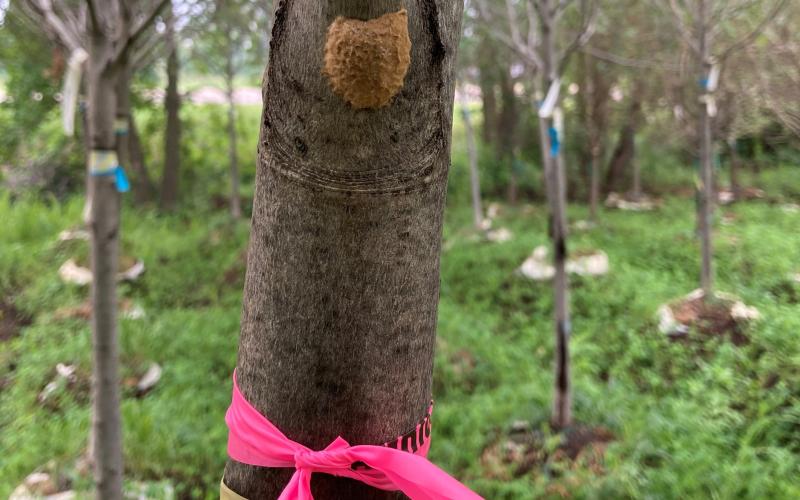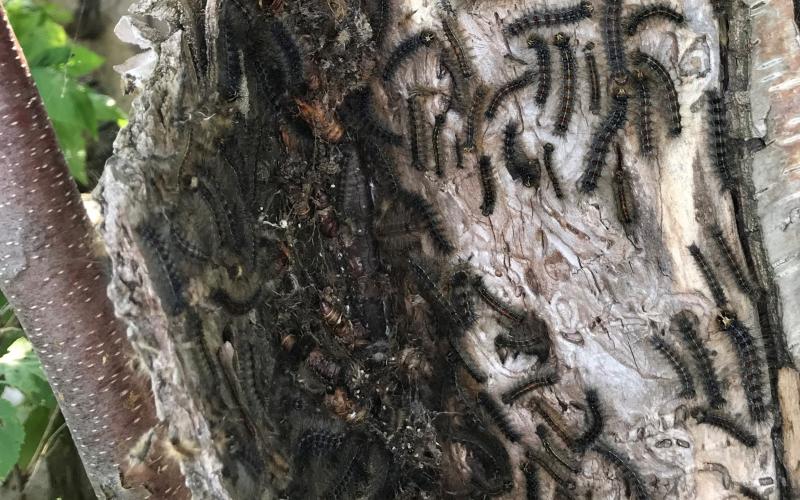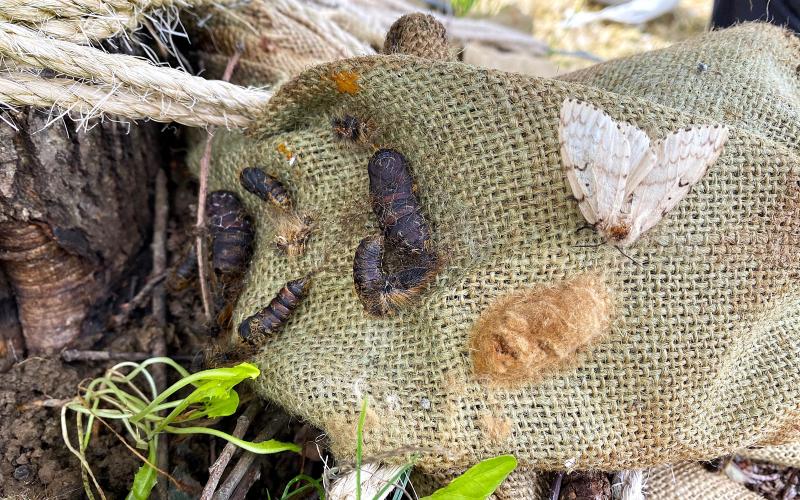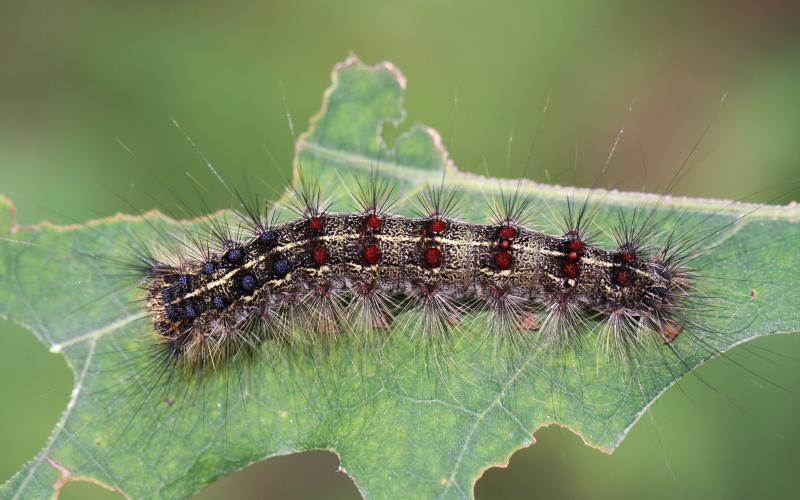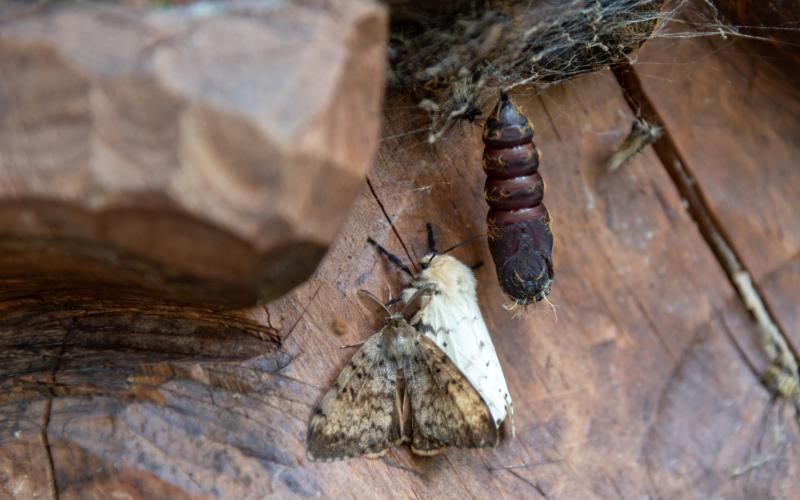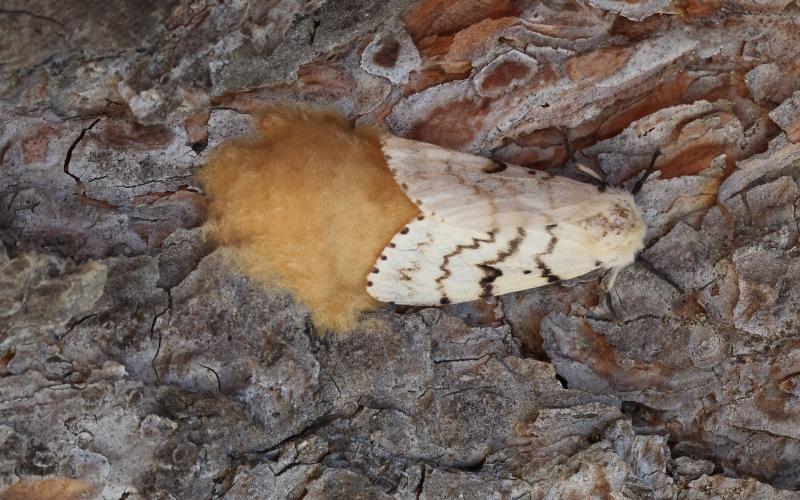Return to spongy moth main menu
Spongy Moth Quarantine and Regulatory Information
Spongy moth is a federally regulated serious invasive forest pest that requires a quarantine to prevent the spread and introductions into uninfested areas. Quarantines are used to limit the spread of invasive forest pests into new areas by preventing the unintentional movement of life stages. The spongy moth quarantine limits the movement of certain items out of a designated area and is an effective tool in managing and slowing its spread across the U.S. and Minnesota.
Spongy moths are expert hitchhikers and are commonly transported as egg masses. Females lay eggs on any solid surface, increasing the risk of further distribution.
Emergency Temporary Quarantines
(Cities of Coon Rapids, Grand Rapids, and Winona)
Due to delays and uncertainties with federal funding, proposed Btk treatments for 2025 were canceled. As a result, emergency spongy moth quarantines are being implemented by the MDA in specific sections of Coon Rapids, Grand Rapids, and Winona (view the quarantine map). These emergency quarantines will be in effect from May 1, 2025 to June 15, 2026.
The following articles are regulated and cannot be moved outside the emergency quarantine area in each city:
- Spong moth in any stage of development: eggs, larvae, pupae, or adult moths.
- Trees and shrubs with roots and persistent woody stems, unless they are greenhouse grown throughout the year.
- Firewood, logs, limbs, and branches over 1 inch in diameter. All species of ash (Fraxinus) are excluded.
- Any other outdoor household articles, such as:
- Outdoor furniture
- Dog houses
- Flower pots
- Tents
- awnings
- boats
- trailers
- recreational vehicles
These items are regulated if an inspector determines there is a high risk of infestation.
Formal Quarantines
(Cook and Lake Counties)
Cook and Lake counties have permanent, established spongy moth populations, and thus have formal quarantines in place. The following articles are regulated under formal spongy moth quarantines in both Cook and Lake counties:
- All stages of the spongy moth life cycle including eggs, larvae, pupae, and adult moths
- Logs, posts, sawbolts, and pulpwood
- Bark and bark products
- Nursery Stock
- Christmas trees, boughs, wreaths, and garlands
- Firewood
- Outdoor household items
- Mobile homes and associated items
- Any other products, articles, or means of conveyance deemed high-risk for spreading spongy moth
Industry Guidelines
 Nursery stock
Nursery stock
Nursery stock shipped out of a quarantine by a nursery or dealer must be treated or visually inspected and certified pest-free. Shippers must be operating under a compliance agreement with state or federal agriculture agencies prior to moving stock.
 Christmas Trees
Christmas Trees
Trees cut in a spongy moth quarantined area must be treated during the growing season prior to shipping. Growers operating under a compliance agreement are eligible to certify, document, and ship loads.
 Logs, Posts, Pulpwood, Bark and Bark Products
Logs, Posts, Pulpwood, Bark and Bark Products
Shippers operating under a compliance agreement must document all loads leaving the quarantine and specify the destination. Treat or remove any life stages found upon inspection. Receivers of quarantined products must operate under a compliance agreement and follow the guidelines set within for processing procedures.
Emergency Quarantine FAQs
An emergency quarantine is a restriction on the movement of spongy moth life stages and materials from leaving the designated emergency quarantine area. The Minnesota Department of Agriculture (MDA) emergency quarantine will be in effect from May 1, 2025 to June 15, 2026.
Due to federal budget uncertainties and significant funding delays within the USDA Forest Service, the MDA did not receive the federal funding needed in time to perform Btk aerial management operations. This has forced the MDA to cancel all Btk management for 2025, which was proposed in areas with high-risk spongy moth infestations. Btk targets and kills spongy moth caterpillars.
As a result, the MDA is placing an emergency quarantine in these areas to prevent the spread of spongy moth. The MDA will intensely survey these areas in 2025 with hopes to manage in 2026.
The emergency quarantine restricts movement of all regulated articles outside of the emergency quarantine zone until the emergency quarantine is lifted. Residents living within the emergency quarantine area must self-inspect any regulated articles. The following is a list of examples of items that should be inspected:
- Lawn and garden equipment
- Outdoor household and patio items
- Recreational vehicles (RVs, campers, ATVs, etc.)
Trees may be pruned but all branches, woodchips and other woody material must stay on the property. Tree bark and branches have the highest risk of having egg masses attached. The emergency quarantine also requires that all outdoor household products, such as patio furniture, trucks, campers, or pallets be inspected to assure the article is free of spongy moth life stages before moving them out of the emergency quarantine zone.
Spongy Moth Quarantine Limited Permit FAQs
All untreated regulated articles, such as sawbolts, pulpwood, or bark for fuel, must be accompanied by a limited permit when leaving spongy moth quarantined areas. Untreated regulated articles can only be transported to specified locations in accordance with specialized conditions.
Limited permits cannot be used for shipment of sawlogs, firewood, bark for mulch, holiday greenery, nursery stock, or for movement outside of Minnesota.
Limited permits expire annually on April 30. Contact the MDA if you need a limited permit after April 30 for the 2025 calendar year.
To obtain a limited permit, individuals must complete a training provided by the MDA. If you had a valid 2024 limited permit you will be emailed instructions on the 2025 training and renewal application. All MDA limited permits expire annually on April 30.
Online training is available by following the steps below.
- Complete the application form.
- Submit your application by email to the MDA.
- Watch the MDA training video.
- Complete an online quiz.
Your limited permit will be emailed to you after completing the four steps above in 7-10 business days. If you have questions, please contact the MDA at reportapest@state.mn.us.
Compliance Agreement FAQs
A compliance agreement is a formal agreement between the state and an entity who handle or move regulated articles out of an emergency quarantine. Compliance agreements establish standard operating procedures that meet the emergency quarantine requirements to limit the risk of spreading spongy moth. Any entities that regularly handle or move regulated articles within and outside the emergency quarantine areas are encouraged to enter into a compliance agreement with the MDA. More information can be found on the Pest Regulations webpage. To establish a compliance agreement, call 651-201-6329.
Quarantine violations occur when companies or individuals transport regulated articles out of the quarantined area without appropriate documentation. This can result in civil or criminal penalties. Entities that regularly move regulated articles can continue to do so if they are operating under a compliance agreement.
Smarty Plants Podcast
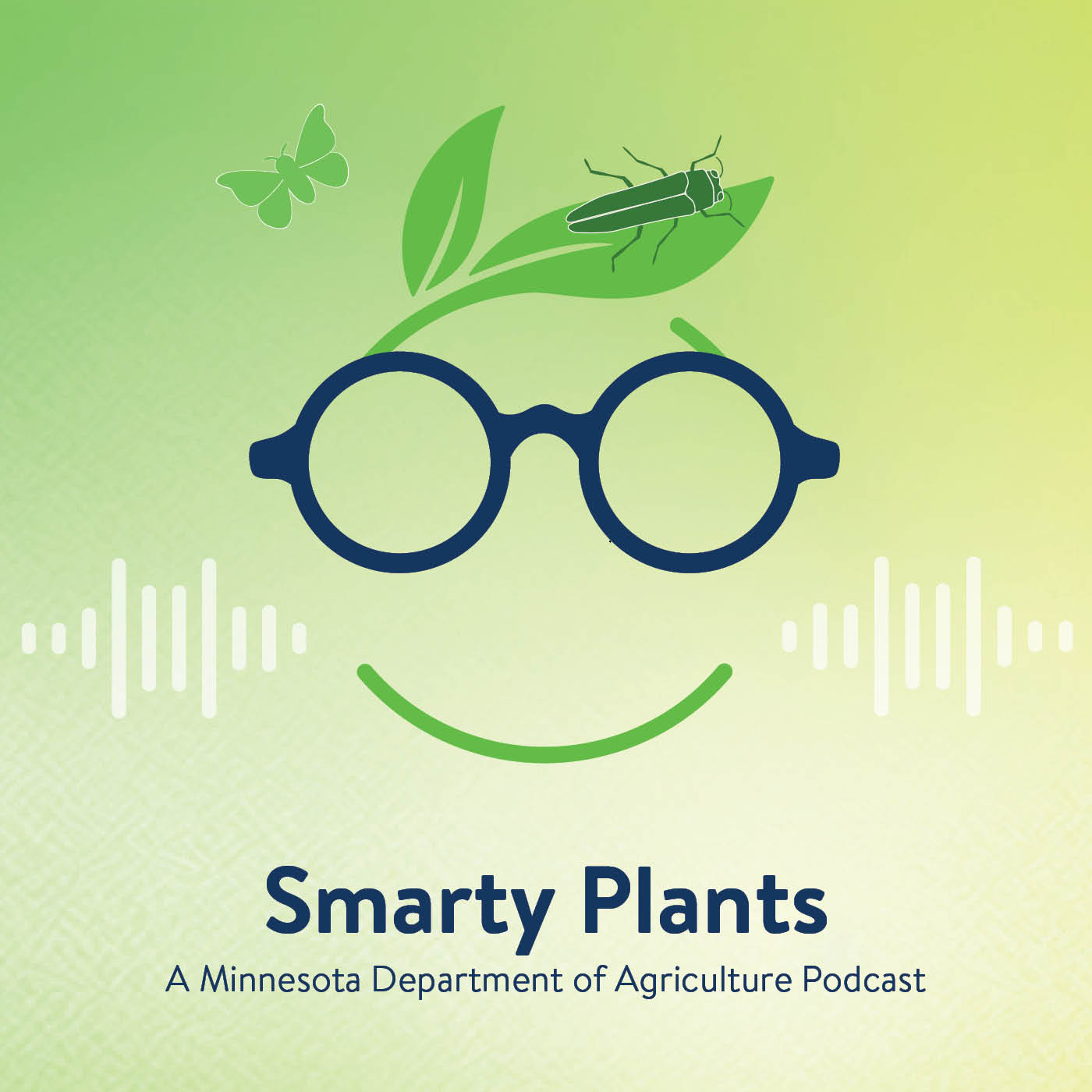
Discover Smarty Plants, the Minnesota Department of Agriculture's podcast that digs into the fascinating world of invasive species. Join expert guests as they share insights and solutions to protect our environment and agricultural resources. Visit Smarty Plants and start listening today.
